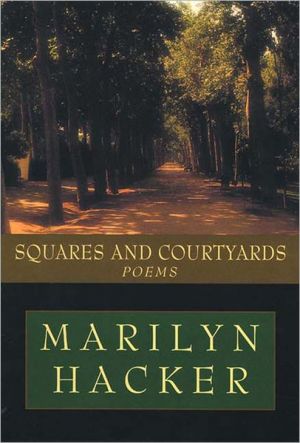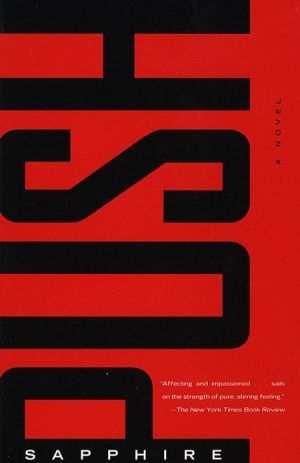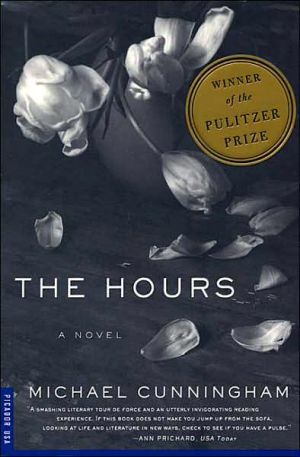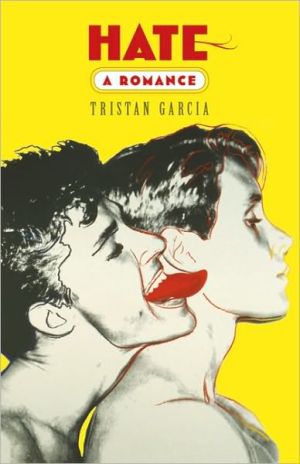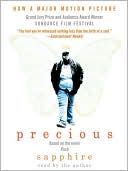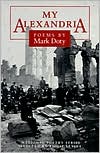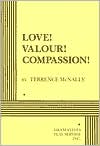Squares and Courtyards
Moving back and forth with the rhythm of the writer’s life, from Paris to New York, from the 1990s to the 1940s, Squares and Courtyards reminds us that, to take action, it is necessary to take notice.
Search in google:
"[Poems] of intense intimacy, beauty, and authority." —W. S. MerwinPublishers WeeklyDailiness and disease fuel the award-winning Hacker's ninth collection of poetry: a grim, painstaking survey of the effects of cancer and HIV on the author's wide circle of loved ones. Hacker conveys a strength of will with an evenness of tone, one that can handle difficult material while offsetting some of the more telegraphed formalism. She is at her strongest when most stark and direct, as in "Twelfth Floor West": "The new bruise on/ her thigh was baffling. They left an armchair/ facing the window: an unspoken goal." The book is separated into two sections, the longer of which, "Scars on Paper," contains 19 shorter poems that harbor some heavy-handed imagery ("She herself/ was now a box of ashes on a shelf/ whose sixteen-year-old-shadow mugged at you/ next to a Beatles poster in your blue/ disheveled bedroom...") and lines that often read like prose broken into triplets, quatrains and unnumbered short sonnet sequences. In the 40-page "Paragraphs from a Daybook," however, Hacker drops her formal guard and finds the emotional pitch and range that most affectingly serve her primary subjects: courage and dignity manifested through ordinary behavior in the face of acute physical breakdown, suffering and societal disdain (several passages take on anti-Semitism)--and searing self-examination: "However well I speak, I have an accent/ tagging my origins: that Teflon fist,/ that hog wallow of investment/ that hegemonic televangelist's/ zeal to dumb the world down to its virulent/ cartoon contours." Readers will find many of the contours here precise and elegant. (Jan.) Copyright 1999 Cahners Business Information.
Scars on PaperThe Boy13Scars on Paper15Tentative Gardening19A Colleague21Days of 1994: Alexandrians22Invocation24Broceliande25Grief26Directions30Street Scenes: Sunday Evening34Wednesday I.D. Clinic37Twelfth Floor West39Long Island Railroad40Squares and Courtyards41April Couplets46Again, the River48Taking Leave of Zenka52Rue de Belleyme56Letter to Munnsville N.Y. from the Rue de Turenne59Paragraphs from a DaybookParagraphs from a Daybook67
\ From Barnes & NobleMarilyn Hacker is one of America's best-known and beloved poets. Her well-wrought, formalist meditations on everyday life, history, illness, and womanhood -- among other topics -- have won her nearly every major poetry prize and a devoted readership the world over. Her new collection, Squares and Courtyards, opens with these lines:\ Is it the boy in me who's looking out\ the window, while someone across the street\ mends a pillowcase, clouds shift, the gutter spout\ pours rain, someone else lights a cigarette?\ \ This initial image -- a boy at a window, gazing outside at the nearby world -- says a lot about Hacker's particular poetic gift. She's like the child in this poem, gazing out and consolidating what she sees into brief lyrical utterances. And indeed, this very window-gazing image recurs in the collection's title poem, in an italicized coda that sums up Hacker's poetic project even more succinctly:\ Not knowing what to thank or whom to bless,\ the schoolgirl at the window, whom I'm not,\ hums cadences it soothes her to repeat\ which open into other languages\ in which she'll piece together sentences\ while I imagine her across the street...\ Hacker might well still be that boy, gazing across the street at a schoolgirl at a different window, imagining her being soothed by her fantasies. There are whole imaginative universes, Hacker demonstrates, within very small spaces, and one way to read this collection's title is that every "square," every "courtyard" (bounded, perhaps, by inhabited ground-floor windows), is a fertile ground for anybody who takes the trouble to look closely.\ Hacker's poems have an old-fashioned charm that is largely due to her use of meter and rhyme schemes. It's downright unnerving to encounter contemporary cultural reference points, like "Starbucks coffee," in iambic pentameter! And reading only a few of Hacker's poems might make you wonder why so few poets stick with the rules of verse: Hacker's poetry has the disciplined regularity of measured speech, and the reader is carried along, comfortably, from image to image, by "cadences it soothes her to repeat."\ Hacker has some recurring preoccupations; for one, she's obsessed with death and suffering. This general fascination extends into some subcategories that come from her own past: the legacy of Nazi Germany and her own battle with breast cancer. "Invocation," perhaps the collection's most moving poem, is a sort of catalogue of breast cancer victims that begins,\ This is for Elsa, also known as Liz,\ an ample-bodied gospel singer, five\ discrete malignancies in one full breast.\ This is for auburn Jacqueline, who is\ celebrating fifty years alive,\ one since she finished chemotherapy,\ with fireworks on the fifteenth of July.\ \ Before "Invocations" is through, we've met "June, whose words are lean and mean/as she is," and "long-limbed Maxine,/astride a horse like conscience," and "Alicia, shaking her dark black hair,/dancing one-breasted with the sabbath bride," and many others. Hacker's genius lies in isolating the everyday and elevating it to a symbolic status. At times, one can almost get lost in the minutiae of her world, but the reader who sticks with her is always rewarded; this is most true in the long sequence "Paragraphs from a Daybook," which closes Squares and Courtyards. This group of 41 15-line poems at first seems almost like an arbitrary collection of images and chance meetings -- "On the market street are bums...I talk with one"; "Chinese schoolgirls draft their own fables..." -- but as the poems build on one another, Hacker's themes of death, suffering, and imagination's redemptive power begin to shine through.\ One fascinating result of reading Hacker is the tendency to see nearly every line as a microcosm of the whole; she writes in lyric fractals. "The nuances of sorrow, grief and pain" (from the "Daybook" sequence) seems the perfect encapsulation of her poems, but then only lines later, we encounter this new summation, which may well be the long-sought answer to Yeats's question "How shall we know the dancer from the dance?": "The movement is the potter's, not the clay..." This can be interpreted in many ways, of course, but one way is to see it as another affirmation of Hacker's faith in the individual imagination, "[t]he schoolgirl at the window, whom I'm not..." Even those Chinese schoolgirls dreaming up "their own fables" bring us back to that central image, the imagining child, that may well be the root of every poem. Squares and Courtyards will be a welcome addition to the collections of those who haven't lost touch with that gazing child and a rebirthing guide for those who have.\ —Jake Kreilkamp\ \ \ \ \ \ Publishers Weekly\ - Publisher's Weekly\ Dailiness and disease fuel the award-winning Hacker's ninth collection of poetry: a grim, painstaking survey of the effects of cancer and HIV on the author's wide circle of loved ones. Hacker conveys a strength of will with an evenness of tone, one that can handle difficult material while offsetting some of the more telegraphed formalism. She is at her strongest when most stark and direct, as in "Twelfth Floor West": "The new bruise on/ her thigh was baffling. They left an armchair/ facing the window: an unspoken goal." The book is separated into two sections, the longer of which, "Scars on Paper," contains 19 shorter poems that harbor some heavy-handed imagery ("She herself/ was now a box of ashes on a shelf/ whose sixteen-year-old-shadow mugged at you/ next to a Beatles poster in your blue/ disheveled bedroom...") and lines that often read like prose broken into triplets, quatrains and unnumbered short sonnet sequences. In the 40-page "Paragraphs from a Daybook," however, Hacker drops her formal guard and finds the emotional pitch and range that most affectingly serve her primary subjects: courage and dignity manifested through ordinary behavior in the face of acute physical breakdown, suffering and societal disdain (several passages take on anti-Semitism)--and searing self-examination: "However well I speak, I have an accent/ tagging my origins: that Teflon fist,/ that hog wallow of investment/ that hegemonic televangelist's/ zeal to dumb the world down to its virulent/ cartoon contours." Readers will find many of the contours here precise and elegant. (Jan.) Copyright 1999 Cahners Business Information.\ \ \ Matthew RothschildIf you want to appreciate what a fine, engaged poet has to offer, this is one excellent place to start. \ —The Progressive\ \ \ \ \ Sam HamillPolitical in the best sense, informed by a deeply felt presence of history, even at her most personal and somber, there is an underlying resilient joy without ego, a joy born of humility in bearing witness in a suffering world. \ —Ruminator Review\ \
